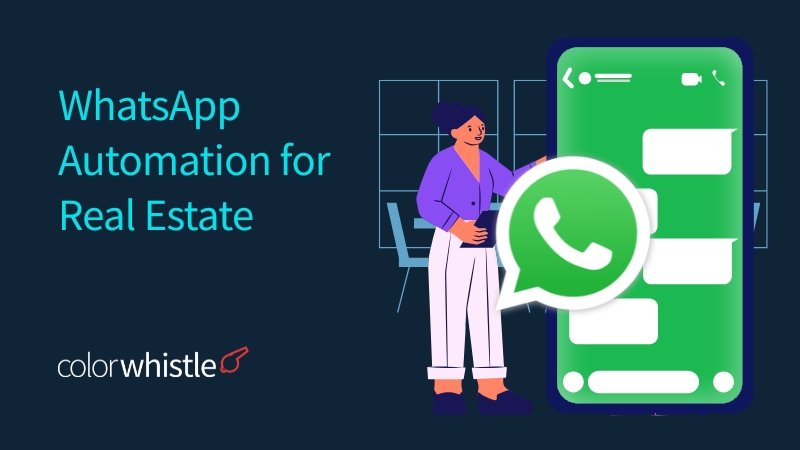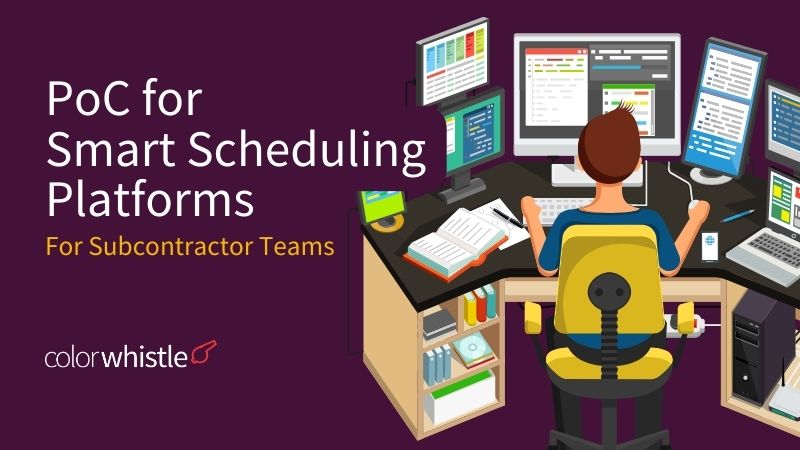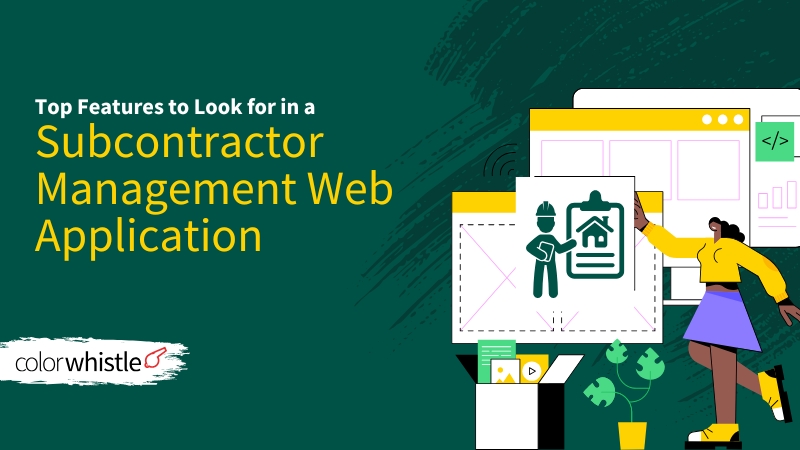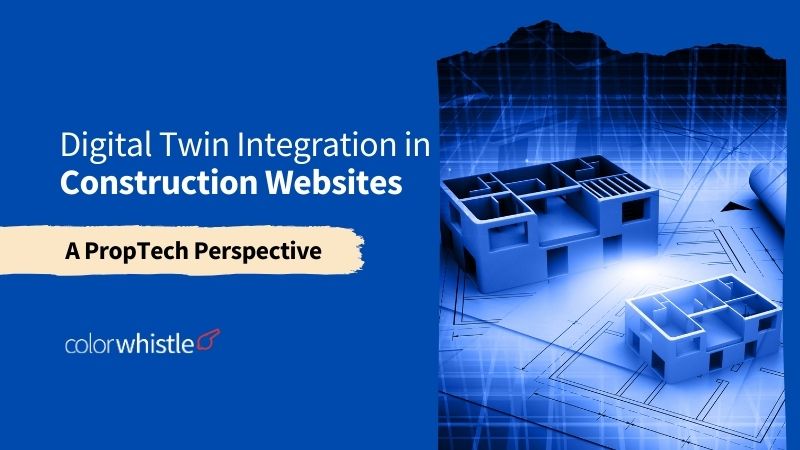AI Summary
Essential Insights on WhatsApp Automation for Real Estate Leads
This blog highlights how WhatsApp automation revolutionizes real estate lead management by enabling instant, personalized communication. The key insight: leveraging WhatsApp Business APIs, AI chatbots, and CRM integration transforms property inquiries into qualified leads efficiently. It serves real estate professionals aiming to boost conversion by automating lead capture, qualification, appointment scheduling, and follow-ups within a familiar platform. Benefits include faster responses, sustained engagement through drip campaigns, rich multimedia presentations, and geolocation targeting. The content encourages adopting multi-stage WhatsApp funnels and debunking web design myths to enhance client engagement. Next steps involve implementing automation tools to save time and increase sales success.
In today’s hyper-competitive real estate market, speed and personalization determine who wins deals. Prospective buyers expect instant, relevant responses and with shrinking attention spans, any delay can mean lost opportunities. That’s where WhatsApp automation has become indispensable for real estate professionals. More than just an instant messaging channel, WhatsApp now empowers agents and developers to capture inquiries, qualify leads, schedule viewings, and nurture prospects automatically all within the same platform where clients already engage daily. With modern automation practices, real estate teams can reduce manual follow-ups, improve response times, and focus on converting serious buyers while systems handle repetitive tasks
WhatsApp automation has emerged as a game-changing solution for real estate professionals seeking to capture and convert property inquiries efficiently. With over 2 billion active users worldwide, WhatsApp has evolved from a simple messaging app into a sophisticated business communication platform that meets clients where they already spend their time.
Understanding WhatsApp Automation in Real Estate
WhatsApp automation in real estate involves the use of WhatsApp Business APIs, AI-powered chatbots, autoresponders, and CRM integrations to streamline communications from initial inquiry to deal closure. Rather than replying manually, agents can configure conversational flows that:
WhatsApp marketing for real estate offers clear benefits over traditional methods:
- Respond instantly to property inquiries, even outside working hours.
- Ask qualifying questions (budget, location, timeline) to segment leads automatically.
- Deliver rich media (images, PDFs, video tours) at scale.
- Schedule property visits or virtual tours without back-and-forth texting.
Modern automation platforms also integrate deeply with CRM systems, ensuring every interaction updates lead profiles in real time. This blend of AI and structured workflows not only improves conversion rates but also reduces lead leakage a common challenge in traditional follow-up systems.
Key Features of WhatsApp Automation for Real Estate Agents
Real estate professionals equipped with WhatsApp automation gain access to powerful capabilities that transform how they manage property inquiries and engage potential buyers. These features work together to create a responsive, efficient system that operates around the clock.
Instant Lead Capture & Qualification
Automated systems collect lead details (budget, preferences, financing timeframe) before an agent intervenes, ensuring only serious prospects are prioritized.
Smart AI Chatbots
Chatbots now understand natural language and guide conversations intelligently suggesting appropriate properties, answering FAQ, and even suggesting next actions based on user intent.
Click-to-WhatsApp Ads & Funnels
Integrating WhatsApp with advertising channels (Meta ads, Google ads) captures leads directly into automated flows without manual entry.
Automated Appointment Scheduling
Prospects can book property tours or virtual viewings through the chat flow itself, eliminating email or phone follow-ups.
CRM Integration & Analytics
Conversations sync with your CRM for unified lead tracking, segmentation, lead scoring, and performance analytics — enabling data-driven sales decisions.
Geolocation-Based Targeting for Precision Marketing
Geolocation targeting enables agents to send property recommendations based on a prospect’s physical location or preferred neighborhoods. This feature identifies buyers searching in specific areas and automatically shares relevant listings, increasing the likelihood of matching properties with genuinely interested parties.
Moreover, as the digital landscape evolves, it’s essential for real estate agents to have a robust online presence. This is where adopting top SaaS website designs can make a significant difference. With cutting-edge trends and sleek interfaces, these websites ensure seamless user interactions which are crucial in today’s market.
In addition, while marketing properties online, utilizing effective design ideas can greatly enhance visibility and engagement. For instance, drawing inspiration from 41+ online education ads design ideas can provide valuable insights into creating compelling ads that capture audience attention.
Building a High-Converting Real Estate WhatsApp Funnel
A well-structured real estate WhatsApp funnel transforms casual browsers into serious buyers through strategic touchpoints. The foundation begins with embedding WhatsApp buttons directly on property listing pages, enabling instant lead generation the moment a prospect shows interest. These buttons eliminate friction by allowing visitors to initiate conversations without filling lengthy contact forms or waiting for callbacks.
Designing Multi-Stage Funnels
Platforms like ColorWhistle provide the infrastructure to design multi-stage funnels that guide prospects through their buying journey. This includes implementing the latest UI/UX trends which enhance user experience and improve website performance.
The process starts with an automated welcome message that acknowledges the inquiry and requests basic information such as budget range, preferred locations, and property type. This initial interaction segments leads automatically, routing them into appropriate nurture sequences.
Sustained Engagement with Cold Leads
Drip campaigns form the backbone of sustained engagement with cold leads. Rather than overwhelming prospects with information, these campaigns deliver value incrementally:
Day 1-3: Send curated property listings matching stated preferences with high-quality images
Day 4-7: Share neighborhood insights, including schools, transportation, and amenities through video content
Day 8-14: Provide market analysis reports and financing options to address common concerns
Day 15+: Offer exclusive viewing opportunities or limited-time incentives to create urgency
Tracking Engagement Metrics
The WhatsApp Automation system tracks engagement metrics at each stage, identifying which prospects open messages, click links, or respond to queries. This behavioral data triggers conditional workflows, active engagers receive more frequent updates, while less responsive contacts enter longer nurture cycles to avoid message fatigue.
Creating Multiple Entry Points into the Funnel
Integration with landing pages creates multiple entry points into the funnel. A prospect downloading a property brochure from your website automatically receives a WhatsApp message with additional resources. This omnichannel approach ensures no lead falls through the cracks, capturing interest regardless of where prospects first encounter your listings.
The automated system maintains consistent communication without requiring manual intervention from agents, who can focus their time on high-intent prospects ready for property viewings.
Navigating Web Development and Design Myths
However, it’s essential to navigate the landscape of web development and design correctly. There are numerous myths about website development and design that can mislead businesses in their digital journey.
By debunking these myths and understanding the realities of web development, businesses can take their online presence to the next level.
Enhancing Client Engagement with Personalized Communication on WhatsApp
Personalized customer engagement transforms generic property inquiries into meaningful conversations that resonate with potential buyers. WhatsApp automation enables real estate professionals to segment their audience based on specific criteria, budget range, preferred locations, property types, and lifestyle requirements, then deliver customized property recommendations that align with each prospect’s unique needs.
The platform’s support for rich media elevates how agents present properties. Instead of text-heavy descriptions, multimedia brochures combine high-resolution images, walkthrough videos, floor plans, and detailed specifications into engaging packages that prospects can review at their convenience. A family searching for a suburban home receives content highlighting spacious backyards and proximity to schools, while young professionals see urban apartments with modern amenities and commute times to business districts.
Incorporating User-Generated Content in Video Marketing can further enhance these multimedia presentations, making them more relatable and trustworthy for potential buyers.
Neighborhood insights add crucial context that helps buyers envision their future lifestyle. Agents can share:
- Video tours showcasing local parks, shopping centers, and recreational facilities
- Image galleries featuring nearby restaurants, schools, and healthcare facilities
- Infographics displaying crime statistics, school ratings, and property value trends
- Voice messages providing insider knowledge about community events and development plans
Moreover, the use of advanced technology like Google AI on Android devices can streamline the process of gathering neighborhood insights by providing smarter assistance and improved productivity.
Multi-device accessibility ensures conversations continue seamlessly across smartphones, tablets, and desktop computers. A prospect who starts browsing properties on their phone during lunch can pick up the conversation on their laptop at home without losing context. This flexibility accommodates modern buyers’ habits of researching properties across multiple devices throughout their decision-making journey.
Real estate agents can schedule automated check-ins that feel personal rather than robotic. A chatbot might ask, “Did you have a chance to review the waterfront properties I shared yesterday?” or “Would you like to see more options in the downtown area?” These touchpoints maintain engagement without overwhelming prospects, keeping your properties top-of-mind while respecting their time and attention.
Streamlining Appointment Management and Follow-ups Using WhatsApp Automation
The traditional back-and-forth of scheduling property viewings often results in missed opportunities and frustrated clients. An appointment scheduling chatbot eliminates this friction by allowing prospects to book viewings directly through WhatsApp conversations. When a potential buyer expresses interest in a property, the chatbot instantly presents available time slots, confirms the appointment, and adds it to your calendar, all without human intervention.
Reducing No-Show Rates with Automated Reminders
Automated reminders play a critical role in reducing no-show rates, which can reach up to 30% in real estate without proper follow-up systems. By integrating WhatsApp automation with your CRM platform, you can trigger reminder messages at strategic intervals:
24 hours before the scheduled viewing
2 hours before the appointment
A confirmation message upon arrival at the property
These reminders can include essential details such as the property address, parking instructions, and the agent’s contact information. The system can also request confirmation from clients, allowing your team to reallocate time slots if cancellations occur.
Enhancing Property Viewings with Virtual Tours
Virtual property tours have become indispensable in modern real estate operations. WhatsApp automation facilitates these experiences by automatically sharing high-quality video walkthroughs or 360-degree images when prospects indicate they cannot attend in-person viewings. The chatbot can guide clients through the virtual tour experience, answering common questions about room dimensions, amenities, and nearby facilities while the prospect explores the property remotely.
Incorporating lookbook video strategies for fashion brands on YouTube into your real estate marketing can also enhance client engagement. These visual storytelling techniques not only boost online presence but also provide a lasting video engagement experience that can lead to increased sales.
Moreover, leveraging tech innovations in leasing can further streamline processes and improve client satisfaction. Such innovations not only simplify appointment management but also enhance overall operational efficiency.
Creating Seamless Workflows with CRM Integration
The integration between appointment management and CRM systems creates a seamless workflow where every interaction gets logged automatically. When a prospect books a viewing, their profile updates in real-time, triggering appropriate follow-up sequences based on their engagement level. This synchronized approach ensures no lead falls through the cracks while maintaining consistent communication throughout the buyer’s journey.
Additionally, advancements in AI technology are transforming how buyers find their dream homes. With personalized property search powered by AI, potential buyers are matched more effectively with properties that meet their specific needs and preferences. This not only enhances user experience but also increases the likelihood of successful transactions.
Case Study: How a Real Estate Firm Successfully Automated Property Promotions with Wati.io
The Challenge: Drowning in Manual Inquiries
Prestige Properties, a mid-sized real estate firm managing over 200 active listings across metropolitan areas, faced mounting pressure from their traditional inquiry management system. Their team of 15 agents spent an average of 4-5 hours daily responding to repetitive questions about property specifications, pricing, and availability. The manual process resulted in:
- Average response time of 3-4 hours during business hours
- 40% of evening and weekend inquiries going unanswered until the next business day
- Inconsistent information sharing across different agents
- Lost opportunities as prospects moved to competitors offering faster responses
The firm recognized that their inability to provide instant, round-the-clock engagement was directly impacting their conversion rates and market competitiveness.
Implementing the Wati.io Solution
Prestige Properties partnered with Wati.io to deploy a comprehensive WhatsApp automation strategy. The implementation unfolded in three strategic phases:
Chatbot Configuration: The team created intelligent conversation flows addressing the 20 most common property inquiries, incorporating rich media responses with property images, video walkthroughs, and downloadable brochures.
CRM Integration: Wati.io’s platform connected seamlessly with their existing Salesforce system, ensuring every WhatsApp interaction automatically updated lead profiles and triggered appropriate follow-up sequences.
Team Training: Agents received hands-off training on managing the hybrid system where automation handled initial engagement while human agents stepped in for complex negotiations.
Transformative Results
Within 90 days of implementing this property promotion automation system, Prestige Properties documented remarkable improvements:
- Inquiry response time dropped from 3-4 hours to under 60 seconds
- Lead qualification rate increased by 67% through automated pre-screening questions
- Deal closure time reduced from an average of 45 days to 28 days
- Agent productivity improved by 35%, allowing focus on high-value client interactions
- After-hours inquiry conversion rate jumped from 12% to 43%
This real estate success story demonstrates how strategic WhatsApp automation transforms operational efficiency while enhancing customer experience.
Compliance and Best Practices in WhatsApp Marketing for Real Estate Professionals
Real estate professionals using WhatsApp automation need to navigate a complex landscape of regulations and platform policies. The success of your automated messaging system depends not only on its technical capabilities but also on strict adherence to compliance standards that protect both your business and your clients.
Securing Proper Opt-In Compliance
Opt-in compliance is the foundation of legitimate WhatsApp marketing. Real estate agents must obtain explicit consent from prospects before initiating any automated communication. This consent should be:
- Clear and specific: Clients must understand they’re agreeing to receive property updates via WhatsApp
- Documented: Maintain records of when and how each contact provided consent
- Revocable: Provide easy opt-out mechanisms in every automated message
The opt-in process can be integrated into your website forms, property inquiry submissions, or during initial client consultations. Never purchase contact lists or add numbers without direct permission, as this violates WhatsApp’s terms of service and can result in permanent account suspension.
Implementing Approved Message Templates
WhatsApp Business API requires pre-approved message templates for initiating conversations with clients. These templates undergo platform review to ensure they meet quality standards and don’t contain promotional spam. Real estate businesses should:
Submit templates for common scenarios: property alerts, appointment confirmations, and follow-up messages
Avoid excessive use of promotional language or aggressive sales tactics
Include personalization variables while maintaining template structure
Test approved templates before deploying them in automated campaigns
Protecting Client Data Privacy
Data privacy concerns require strict security measures when handling client information through WhatsApp automation. Choose API providers that offer end-to-end encryption and comply with GDPR, CCPA, or relevant regional regulations. Implement comprehensive staff training programs covering:
- Proper handling of sensitive client information
- Recognition of phishing attempts and security threats
- Protocols for data breach response
- Regular audits of access permissions and usage logs
Measuring Success with Analytics and Performance Monitoring Tools in WhatsApp Automation for Real Estate Agents
Data-driven decision-making separates successful real estate operations from those that struggle with lead conversion. Inquiry response rate tracking tools embedded within WhatsApp automation platforms provide real-time visibility into how quickly your team engages with potential buyers. These metrics reveal whether automated responses are reaching prospects within the critical first few minutes of contact, a timeframe that significantly impacts conversion likelihood.
Leading platforms like Wati.io and ColorWhistle offer comprehensive analytics dashboards that transform raw interaction data into actionable insights. Their campaign analytics software monitors multiple performance indicators simultaneously:
- Message delivery and read rates – Understanding how many prospects actually view your property listings
- Click-through rates on shared links – Measuring engagement with virtual tour links and brochure downloads
- Conversation completion rates – Tracking how many automated conversations result in qualified leads
- Agent handoff frequency – Identifying when chatbots successfully transfer complex inquiries to human agents
Deal closure time analysis becomes particularly valuable when evaluating automation effectiveness. By comparing the average days-to-close before and after implementing WhatsApp automation, real estate professionals can quantify the financial impact of their investment. Properties that previously took 45 days to close might now convert in 30 days due to faster response times and consistent follow-up sequences.
The most sophisticated real estate teams establish performance benchmarks and conduct weekly reviews of their automation metrics. When data reveals that certain property types generate higher engagement rates, agents can adjust their automated messaging strategies accordingly. If specific neighborhoods show lower conversion rates despite high inquiry volumes, teams can refine their targeting parameters or enhance the quality of shared content.
These analytics platforms also enable A/B testing of different message templates, allowing agents to experiment with various approaches to property descriptions, pricing presentations, and call-to-action phrasing. The continuous feedback loop created by performance monitoring ensures that WhatsApp automation strategies evolve alongside market conditions and buyer preferences.
Overcoming Challenges in Implementing WhatsApp Automation Solutions in Your Real Estate Business
Implementing WhatsApp Automation in a real estate business requires strategic planning to address common obstacles that can derail adoption efforts. Understanding these challenges upfront enables agencies to develop targeted solutions that ensure smooth integration.
Managing Technology Investment and Setup Costs
The initial financial commitment for WhatsApp automation platforms can seem substantial, particularly for smaller agencies operating on tight margins. Setup costs management strategies include:
Phased implementation approach: Start with core features like automated responses and property listing sharing before expanding to advanced capabilities
ROI-focused budgeting: Calculate potential savings from reduced manual response time and increased conversion rates to justify the investment
Scalable pricing models: Choose platforms like Wati.io or ColorWhistle, which not only offers tiered pricing aligned with business size and message volume but also provides excellent web development services that can be leveraged for creating a robust online presence.
Resource reallocation: Redirect marketing budgets from less effective channels toward automation infrastructure
Addressing Staff Resistance Through Strategic Training
Real estate agents often view automation as a threat to their client relationships rather than an enhancement tool. Staff resistance mitigation techniques must focus on demonstrating tangible benefits:
Hands-on training sessions that showcase how automation handles routine inquiries while freeing agents to focus on high-value activities like property showings and negotiations prove most effective. Agents who understand that chatbots qualify leads before human intervention typically embrace the technology faster.
Create champion agents within your team who test the system first and share success stories with colleagues. Their peer endorsements carry more weight than management directives.
Designing Effective Pilot Programs
Pilot program design tips emphasize controlled testing environments that minimize risk while generating actionable insights:
- Select a specific market segment: Test automation with a particular property type or price range
- Define clear success metrics: Establish baseline measurements for response times, lead quality, and conversion rates
- Set realistic timeframes: Allow 60-90 days for meaningful data collection and agent adaptation
- Document learnings systematically: Track both technical issues and user feedback for refinement
Regional pilot programs allow agencies to compare automated versus traditional approaches across similar markets, providing concrete evidence of effectiveness before organization-wide rollout.
In addition to these strategies, it’s essential to address any common WordPress problems that may arise during the implementation of WhatsApp automation solutions, especially if your agency’s website is built on this platform. By being proactive in resolving these issues, you can ensure a smoother transition into the world of automated communication.
Moreover, if your real estate business is looking for an upgrade in its online presence or needs assistance in developing a responsive website or web application, considering the top website design agencies could be beneficial. These agencies offer creative web solutions that could elevate your online presence significantly.
Lastly, as mobile applications are becoming increasingly important in real estate transactions, understanding the reasons why Flutter apps matter could provide valuable insights into how these applications can enhance user experience and engagement in your real estate business.
Conclusion
The real estate industry needs quick and personalized responses to property inquiries. WhatsApp Automation is a game-changing solution that meets this urgent need while opening up significant opportunities for growth in real estate businesses. Platforms like Wati.io and ColorWhistle, known for their expertise in automation and digital marketing, have proven their ability to turn casual visitors into qualified leads through smart automation, strategic follow-ups, and seamless integration with customer relationship management (CRM) systems.
The evidence is clear: automated handling of property inquiries reduces response times from hours to seconds, while sophisticated drip campaigns nurture prospects throughout their decision-making process. Virtual tour scheduling, geolocation-based targeting, and sharing of rich media create opportunities to enhance the customer experience that traditional methods simply cannot match.
Real estate professionals who embrace these automation solutions position themselves ahead of competitors still relying on manual processes. The technology takes care of repetitive tasks, such as confirming appointments, sharing property details, and initial qualification, freeing agents to focus on high-value activities like negotiation and building relationships.
The investment in WhatsApp automation technology delivers measurable returns through improved inquiry response rates, shorter deal closure times, and higher client satisfaction. As buyer expectations continue to evolve toward instant communication and 24/7 availability, automation becomes less of an option and more of a necessity for sustained success in the property market.
Moreover, just as SEO for IT services companies is becoming increasingly relevant even beyond 2026, the same can be said for the real estate sector. Embracing these digital strategies not only meets current buyer expectations but also sets the stage for future growth and success in the ever-evolving property market.
FAQs (Frequently Asked Questions)
What is WhatsApp automation in real estate and how does it improve lead handling?
WhatsApp automation in real estate utilizes tools like the WhatsApp Business API and chatbots to streamline communication, enabling efficient management of property inquiries and qualification of leads. This automation enhances response times, ensuring real estate agents can handle more prospects effectively and convert qualified leads faster.
How can real estate agents use WhatsApp automation to share property listings and schedule virtual tours?
Agents can leverage WhatsApp automation features such as auto-sharing of property listings, videos, and brochures directly with prospects. Additionally, chatbots facilitate scheduling and follow-ups for virtual tours, providing a seamless experience for clients while saving time for agents.
What are the benefits of integrating CRM systems with WhatsApp automation in real estate?
Integrating CRM systems with WhatsApp automation allows for seamless lead nurturing by synchronizing client data and communication history. This integration helps agents track interactions, personalize engagements, automate follow-ups, and ultimately improve conversion rates through targeted marketing efforts.
How does personalized communication on WhatsApp enhance client engagement in real estate?
Personalized communication through WhatsApp enables agents to deliver tailored property recommendations based on user preferences, share neighborhood insights via multimedia brochures like videos and images, and maintain continuous interaction across multiple devices. This approach builds trust and keeps clients engaged throughout their buying journey.
What compliance measures should real estate professionals follow when using WhatsApp marketing?
Real estate professionals must obtain proper opt-ins from clients before sending messages, utilize approved message templates to adhere to platform policies, and address data privacy concerns by partnering with secure API providers and training staff appropriately. These practices ensure compliant and respectful communication that protects both clients and businesses.
How can analytics tools help measure the success of WhatsApp automation in real estate?
Analytics tools track key performance metrics such as inquiry response rates, deal closure times, and campaign effectiveness. Platforms like Wati.io or ColorWhistle provide dashboards that enable continuous monitoring and optimization of automated systems, helping real estate agents refine strategies for better engagement and increased sales.





